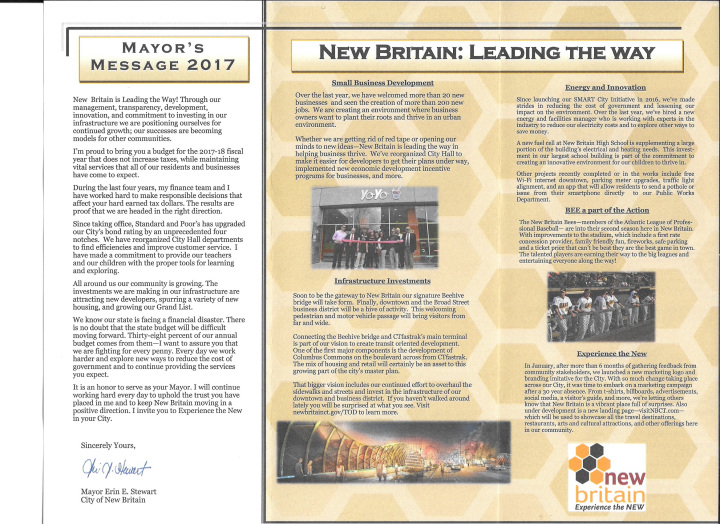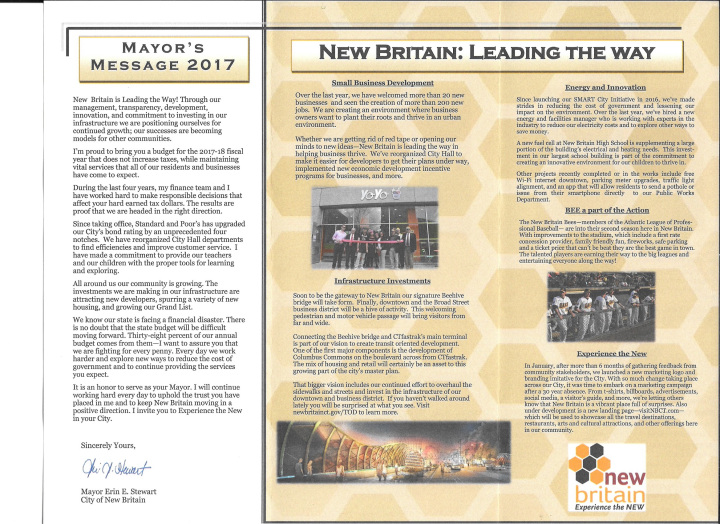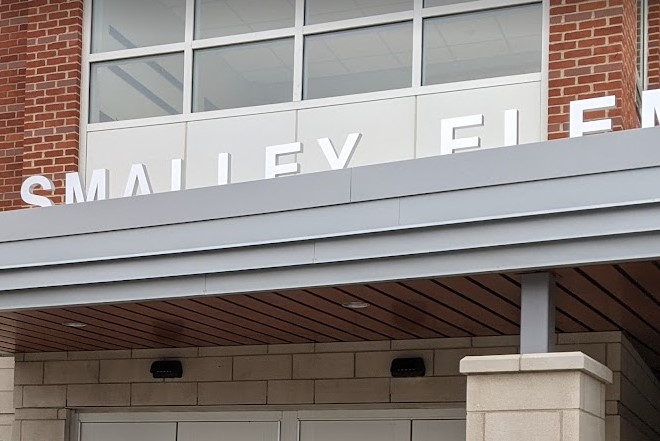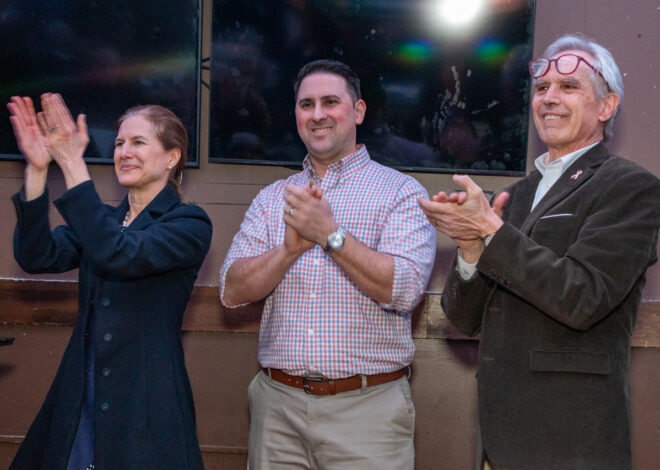By John McNamara
Contributing Columnist
New Britain motor vehicle owners finally got their bills on September 1 along with a glowing missive from Mayor Erin Stewart that makes the case for her re-election.

The city held up auto tax notices this year, blaming the state budget impasse for the two month delay. Uncertain was whether the auto levy would be lowered to 32 mills or stay at 37. Given the state deficit then and now, it would have been a safe bet to go with the 37 mill rate in July rather than wait. The $241.5 million municipal budget for the year that began July 1st is based on what New Britain got from the state in the 2017 fiscal year.
In a city election year the delay in mailing tax bills is giving incumbent Stewart a prohibited taxpayer-funded freebie — an expensive city-wide mailing to everyone who owns a car or truck — to boost her campaign closer to the election.
Don’t expect Stewart and her full-time image team in the Mayor’s office to miss an incumbent’s prerogative of using public funds to deliver a not so subtle piece of campaign promotion. Normally there’d be nothing wrong with it. It’s done here and in many places all the time — an advantage to incumbents in local races with no public financing.
The issue usually arises over “franking privileges” for state and federal lawmakers who send their own positive mailers back to their districts on accomplishments and legislation.
At issue here is whether Stewart used the good offices of the Tax Collector to promote her candidacy within three months of an election. That’s where the Connecticut General Statutes come in. State law prohibits any use of taxpayer money by incumbents within 90 days of an election for self promotion.
From Connecticut general statutes 9-610
(d) (1) No incumbent holding office shall, during the three months preceding an election in which he is a candidate for reelection or election to another office, use public funds to mail or print flyers or other promotional materials intended to bring about his election or reelection.
Using her campaign slogan “Leading The Way” in the taxpayer-funded brochure, Stewart cites saving the city from fiscal ruin, good bond ratings, reorganizing city hall departments “to find efficiencies and improve customer service” and “a continuous commitment to provide our teachers and our children with the proper tools for learning and exploring.” The official message is a carbon copy of what can be found on Stewart’s campaign website.
Any and all of the Stewart’s tax mailer assertions, of course, can be challenged in an election year. A closer look at the municipal budget shows higher spending trumps efficiency at City Hall. A hefty jump in interest payments looms on short-term borrowing because Stewart and the Common Council deferred on paying bills coming due last year. And that “continuous commitment” to education? It’s hard to find in a Stewart budget that continues to spend more at City Hall but didn’t add a dime to schools in the current budget.
In politics timing can be everything and can determine what is allowed and what isn’t under the law.
By incorporating her campaign promotion in the late auto tax notices, Mayor Stewart ignored the law that bans incumbents from using public funds “to mail or print flyers or other promotional materials” for reelection.
This column first appeared in NBPoliticus.




